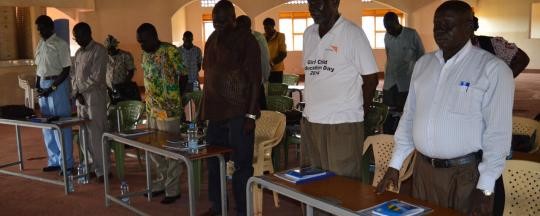The government will increase by three times the pay of junior civil servants starting next month after the devaluation of the South Sudanese pound in mid-December 2015.
South Sudan’s central bank has dropped its fixed peg on the dollar of 3:1 and allowed the currency to float to more than five times the previous rate in order to match black market rates.
According to Minister of Information Michael Makuei, the cabinet on Tuesday heard a presentation from the minister of public service and human resource development on the review of the salary structure and scales during an extraordinary meeting chaired by President Salva Kiir.
“After lengthy deliberation the cabinet decided to break up this issue of the increment in to three phases,” he explained, noting that junior civil servants would be the first to benefit from a pay hike while more senior civil servants would receive their increment at a later date.
“Phase one was to cover from grade 17 up to grade 10 and phase two was to cover from grade nine up to grade five and phase three was to cover from grade four upwards. This was decided by the cabinet and it is decided that the first phase that is phase one should cover the unclassified staff, and junior officials, private and NCOs and some few officers in the regular forces,” he said.
“These are the people with lower income and that this increment should by 300% that is the basic pay times three this is what was agreed and this will be in effect from February 2016.”
Makuei added, “As for phase two and phase three, these are phases that will be considered at a later stage. As you know very well we have financial problems so it is decided that the most affected class which are the unclassified and other junior staff these are the people who would immediately benefit from this because they are the most affected. Others – the middle class and the upper class – will follow at another phase.”
File photo: A training for teachers in Central Equatoria State, December 2015




